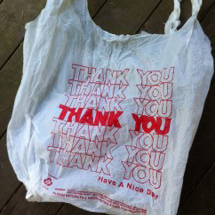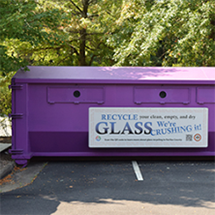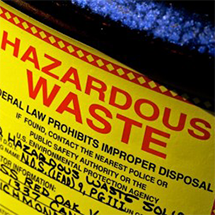Litter
Litter is trash not in its proper place or container. Litter has negative impacts on public health and the environment, including:
- Attracts rodents and insects
- Pollutes streams and lakes
- Kills fish and wildlife
- Degrades water quality
- Destroys scenic views
Having an engaged and active community puts YOU on the front lines of defense against litter pollution!
What Can YOU Do to Keep Our Community Clean?
The best way to address litter is to prevent it before it happens.
- Learn how to properly dispose of materials. Visit Reduce, Reuse, and Recycle
- Storm drains are not trash cans. They go directly into our waterways. Never put garbage or debris into them because it can cause flooding and prevent the drain from functioning properly.
- Adopt a Highway and keep it free of litter.
- If you see overflowing trash cans and dumpsters, report them to the Solid Waste Management Program.
- Organize or participate in neighborhood stream cleanups. See Volunteer With Us! for more opportunities.
Volunteer With Us!
There are many ways to get involved in our community. Below are some partner organizations who lead and organize volunteer opportunities. Volunteering for a stream clean-up is a great way to earn volunteer community service hours!
What We Are Doing!
Operation Stream Shield
Operation Stream Shield (OSS) is a collaborative effort between the Department of Public Works and Environmental Services and the Office to Prevent and End Homelessness. This initiative serves a dual purpose: enhancing the environment and providing support to individuals experiencing homelessness. By engaging them in clean-up activities, OSS improves water quality in local streams.
The program plays a vital role in fulfilling the County's commitment to maintaining clean streams by removing litter and non-native invasive plant species. Additionally, OSS contributes to various other essential tasks such as maintaining the county's pedestrian trail system, supporting facilities like the Noman M. Cole, Jr. Water Recycling Facility, I-66 Transfer Station, and the I-95 Landfill Complex, and participating in assigned special projects as opportunities arise.
The Bandalong Litter Trap
The Bandalong Litter Trap is an innovative solution designed to intercept litter and pollution flowing downstream, crucial for maintaining healthy aquatic ecosystems. Our device predominantly captures organic debris, highlighting its ineffectiveness in capturing man-made pollutant materials. Since its installation in 2021, DPWES has collected over 3,000 pounds of litter, averaging 60 to 90 pounds monthly (equivalent to $600-$900), including more than 1,000 pounds of organic and woody material. Considering the lower cost per weight of litter removed and the additional social benefits offered by OSS, DPWES has opted to prioritize the expansion of OSS rather than installing additional Bandalong traps at present.
The StormX System
The StormX system is an innovative method tailored to intercept litter and pollutants entering stormwater detention ponds. Within the Centreville Greene development, two pond locations have been equipped with this solution. Like the Bandalong, it primarily captures organic debris over litter. Monthly, it effectively captures approximately 15 to 20 pounds of litter. DPWES has observed that the OSS Program, covering a broader county area, proves more cost-effective in litter removal from the environment compared to structural BMPs, which involve design, construction, and maintenance expenses.
Litter Complaints
Litter may be found in several locations, each with different ownership and enforcement responsibilities. See the descriptions and links below to help direct complaints to the appropriate agencies.
- Litter left on the side of a public roadway or the median strip
- Unattended trash or discarded bulk items on private property
- Litter at an active construction site
- Litter at a county government facility
- Stormwater Facilities
- Our Role in Litter Management: At Fairfax County, we're committed to effective stormwater management and environmental stewardship. It's important for the public to understand our scope of service and limitations regarding litter management.
- Our Scope: Our team diligently maintains stormwater facilities at specific locations and frequencies.
- Our Responsibility: While we actively manage and maintain stormwater facilities, our responsibilities do not include picking up litter reported by the public.
- Resource Constraints: We have received inquiries about litter pick-up from properties outside our regular maintenance schedules. However, we are not staffed or budgeted to accommodate such requests.
- Community Collaboration: We appreciate public awareness and cooperation in helping maintain cleanliness in public spaces. Your efforts alongside ours contribute to a cleaner environment. Property owners are asked to help keep their properties free of litter, regardless of whether a county easement exists or not.
- Litter at a county park
- Litter at a facility otherwise regulated by Fairfax County (e.g., bars and restaurants, medical care facilities)
- Missed refuse or recycling collection
- Litter left on a sidewalk in front of residential or private property. Report to the Solid Waste Management Program, SWMP-Enforcement at 703-324-5230, TTY 711 or email trashmail@fairfaxcounty.gov.
- Police Enforcement of Virginia Code Enforcement




